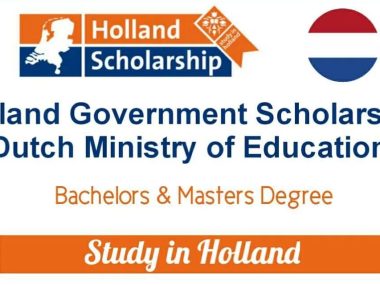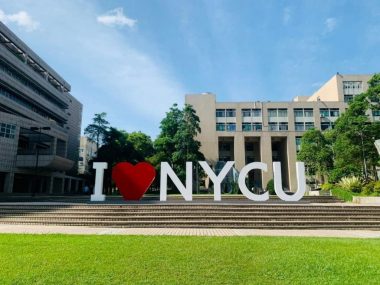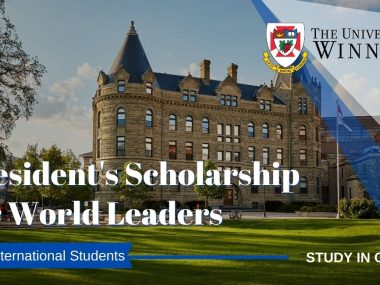Application is invited to apply for the University of British Columbia Scholarships In Canada 2024. The University of British Columbia (UBC) Schmidt Science Fellowships represent a prestigious and transformative opportunity for young scientists and researchers.
Established in collaboration with the Schmidt Science Fellows program, these fellowships aim to support exceptional individuals in advancing their scientific careers while fostering interdisciplinary collaborations. The Schmidt Science Fellows program was founded by Eric and Wendy Schmidt, in partnership with the Rhodes Trust, with the vision of cultivating the next generation of scientific leaders.
At UBC, the Schmidt Science Fellowships offer a platform for outstanding early-career scientists to engage in groundbreaking research, collaborate with leading experts, and explore innovative solutions to pressing societal problems. Fellows at UBC are immersed in a vibrant scientific community that fosters collaboration across disciplines, encouraging the exchange of ideas and expertise.
University Of British Columbia Scholarships
- Fellowship Name: Schmidt Science Fellowship
- University: University of British Columbia
- Degree: Ph.D
- Deadline: April 2024
Eligibility Criteria
To be considered for nomination and potential selection as a Schmidt Science Fellow, candidates must satisfy the following eligibility requirements:
Completion of UBC Ph.D.: Candidates must have completed or expect to complete all requirements for the conferral of their UBC Ph.D., including a successful defense, between 1 June 2023 and 30 July 2024. Please note that prospective UBC students are not eligible for nomination.
Graduate Degree in Relevant Fields: Candidates must have pursued their graduate degree in the natural sciences (Astronomy, Biology, Chemistry, Physics, and Earth Sciences), Engineering, Mathematics, or Computing, including all sub-disciplines within these fields.
Availability for the Program: Candidates must be available for the entire duration of the 2024 program, which spans from July 2024 to September 2025. This includes attending the Global Meeting Series, whether virtual or in person, as conditions permit, along with additional virtual programming.
The Schmidt Science Fellows program is committed to ensuring equal opportunities for all candidates. Applications from individuals are strongly encouraged, regardless of age, disability, gender, gender identity, gender reassignment, sexual orientation, pregnancy or maternity, parental status, marital or civil partner status, race, color, ethnic or national origin, nationality, religion, or belief.
Financial Benefits
The University of British Columbia Schmidt Science Fellowships provide several financial benefits to support the fellows during their postdoctoral study and professional development:
Stipend: Each fellow receives a generous stipend of $100,000. This stipend is designed to provide financial support throughout their full-time, postdoctoral study, which typically lasts for a minimum of one year. The stipend enables fellows to focus on their research and further their scientific careers.
Postdoctoral Study: The fellowship offers fellows the unique opportunity to undertake their postdoctoral study in a world-leading laboratory. Importantly, fellows have the freedom to choose a field of study that is distinct from their existing area of expertise. This interdisciplinary approach allows fellows to broaden their knowledge, explore new scientific frontiers, and make impactful contributions to their chosen field.
Residential Meetings: Fellows participate in a series of four residential meetings that are conducted worldwide during their fellowship year. These meetings span five weeks each and serve as intensive training sessions. Tailored to the specific needs of the fellows, these gatherings provide comprehensive training to nurture their skills and cultivate them into the next generation of scientific leaders. The residential meetings foster collaboration, interdisciplinary learning, and networking opportunities among fellows and renowned experts in various scientific disciplines.
Application Deadline:
Applications for the University of British Columbia Fellowships 2023 in Canada are likely to be closed in April 2024.
How To Apply
Applicants for the University of British Columbia Fellowships are required to submit their application materials to their respective graduate programs. A complete application should include the following components:
Curriculum Vitae (CV): The nominee must provide a comprehensive CV that includes their academic and research background, along with a list of publications. The CV should be limited to a maximum of three pages.
Statement from the Nominee: The nominee should submit a statement, not exceeding one page, addressing two key points: a) Alignment with the Schmidt Fellows program: The statement should express the nominee’s interest in pursuing a year or more of postdoctoral study in a field different from the topic of study for which they received their doctorate. It should highlight their enthusiasm for interdisciplinary research and their commitment to exploring new scientific avenues. b) Collaborative Spirit: The nominee should showcase their history of effective collaboration with diverse team members. This could include examples of successful collaborations, teamwork skills, and the ability to work harmoniously in multidisciplinary settings.
The proposal from the Nominee: The nominee must present a proposal, limited to a maximum of two pages, addressing the following points: a) Potential Postdoctoral Research Direction: The proposal should outline the nominee’s intended direction for postdoctoral research. It should demonstrate a clear understanding of the research area, highlight the significance of the proposed work, and articulate specific objectives and methodologies. b) Brief Rationale for Potential Postdoctoral Fellowship Labs: The nominee should provide a concise explanation, up to three labs, on why they believe these labs are suitable for their postdoctoral fellowship. The rationale should consider factors such as the lab’s expertise, resources, and alignment with the nominee’s research interests and goals.
For more information please check the official source.






